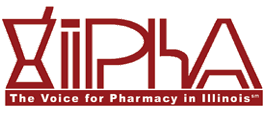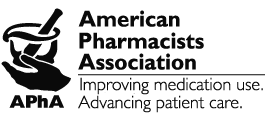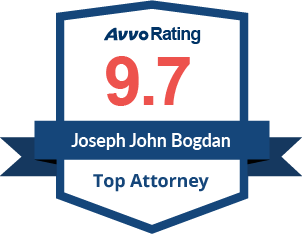Recent Blog Posts
Two Illinois Doctors Indicted by DEA for Operating Pill Mill
 The Drug Enforcement Administration (DEA) – Chicago Division, along with the U.S. Attorney for the Northern District of Illinois recently announced that two Illinois doctors were indicted on federal criminal charges for allegedly prescribing opioids to patients who did not have a legitimate medical reason for the drugs.
The Drug Enforcement Administration (DEA) – Chicago Division, along with the U.S. Attorney for the Northern District of Illinois recently announced that two Illinois doctors were indicted on federal criminal charges for allegedly prescribing opioids to patients who did not have a legitimate medical reason for the drugs.
The Indictments
According to the information released by the DEA, one of the physicians charged managed a medical practice in Melrose Park and the second physician was employed there. The indictments allege that between 2015 and 2020, the doctors dispensed fentanyl, hydrocodone, oxycodone, and other controlled substances to patients who came to the practice but that no physical exams or diagnostic tests were performed on these patients in order to confirm what medical needs the patients had for these drugs.
The doctors are also accused of causing pharmacies to submit many claims to Medicare and Medicaid for prescriptions that were allegedly improperly prescribed.
Fraud Alert: Scammers Targeting Medical License Holders
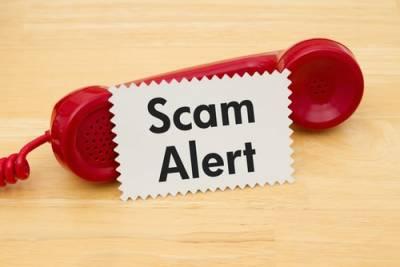 Over the last few months, federal and state agencies across the country have issued warnings to health care professionals who hold various licenses to watch out for phone calls and letters from scammers claiming to be from state medical boards, claiming the person’s medical license has been suspended. The FBI and other law enforcement agencies are currently investigating these alleged scams. If you have been contacted by someone claiming to be from the Illinois Medical Board threatening that your license is in jeopardy, it is important to contact an Illinois professional license defense attorney right away.
Over the last few months, federal and state agencies across the country have issued warnings to health care professionals who hold various licenses to watch out for phone calls and letters from scammers claiming to be from state medical boards, claiming the person’s medical license has been suspended. The FBI and other law enforcement agencies are currently investigating these alleged scams. If you have been contacted by someone claiming to be from the Illinois Medical Board threatening that your license is in jeopardy, it is important to contact an Illinois professional license defense attorney right away.
Details of the Scam
According to details released by law enforcement, the scammers will contact a health professional usually by phone. The call appears to be legitimate to the recipient because the scammers have been able to alter the phone number on the person’s caller ID so that it appears that the call is actually coming in from the state’s medical board.
FSMB: Medical Professionals Risk Losing License for Spreading False COVID-19 Vaccine Info
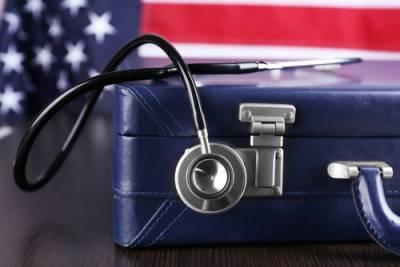 There is no doubt that the country is deeply divided over just how serious COVID-19 is and what steps should be taken to mitigate the spread of the virus. There is intense debate over vaccines, masks, and social distancing, with much of that debate raging over social media platforms. Unfortunately, there has been an avalanche of misinformation and disinformation posted on these platforms about the virus. Some of this information comes directly from physicians, nurses, and other medical professionals. All of this misinformation has prompted the Federation of State Medical Boards (FSMB) to announce that any healthcare professional who spreads COVID-19 misinformation is at risk of losing their medical license.
There is no doubt that the country is deeply divided over just how serious COVID-19 is and what steps should be taken to mitigate the spread of the virus. There is intense debate over vaccines, masks, and social distancing, with much of that debate raging over social media platforms. Unfortunately, there has been an avalanche of misinformation and disinformation posted on these platforms about the virus. Some of this information comes directly from physicians, nurses, and other medical professionals. All of this misinformation has prompted the Federation of State Medical Boards (FSMB) to announce that any healthcare professional who spreads COVID-19 misinformation is at risk of losing their medical license.
The Federation of State Medical Boards
The FSMB is a nonprofit organization that represents 71 state medical and osteopathic boards in the United States. The organization provides education, data, assessment, and research to medical boards, while also focusing on initiatives and services that promote regulatory best practices, quality health care, and patient safety. The FSMB also co-sponsors the United States Medical Licensing Examination.
Requirements of a Nurse Practitioner in Illinois
 A nurse practitioner is one type of advanced practice registered nurse. In order to be licensed as a nurse practitioner, you are required to have additional education, training, and certification. Traditionally, nurse practitioners could be found at medical facilities such as urgent care clinics, but today, more and more patients are turning to nurse practitioners for their primary healthcare needs. Here in Illinois, the number of nurse practitioners have tripled over the past ten years and now number over 12,000.
A nurse practitioner is one type of advanced practice registered nurse. In order to be licensed as a nurse practitioner, you are required to have additional education, training, and certification. Traditionally, nurse practitioners could be found at medical facilities such as urgent care clinics, but today, more and more patients are turning to nurse practitioners for their primary healthcare needs. Here in Illinois, the number of nurse practitioners have tripled over the past ten years and now number over 12,000.
At one time, nurse practitioners were always required to enter into a collaborative practice agreement with a physician, but that changed a few years ago when the state of Illinois passed a law allowing advanced practice registered nurses to practice independently of doctors. However, there are stringent requirements that must be met in order for them to do so.
Defending Against Accusations of Healthcare Fraud
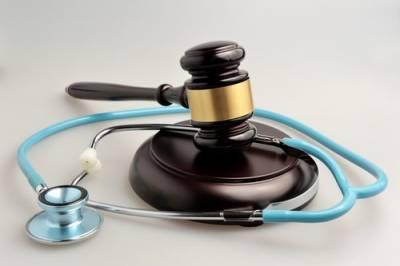 The shutdowns of the COVID-19 pandemic resulted in multiple federal programs to help businesses and individuals survive financially. Some of these resources included the Economic Injury Disaster Loan program, Paycheck Protection Program, and the Pandemic Emergency Unemployment Compensation. Over the last several months, the U.S. Department of Justice (DOJ) has announced indictments of multiple cases of fraud against parties who allegedly benefitted from these programs illegally. Recently, the DOJ announced another area of pandemic fraud they will be targeting – healthcare fraud.
The shutdowns of the COVID-19 pandemic resulted in multiple federal programs to help businesses and individuals survive financially. Some of these resources included the Economic Injury Disaster Loan program, Paycheck Protection Program, and the Pandemic Emergency Unemployment Compensation. Over the last several months, the U.S. Department of Justice (DOJ) has announced indictments of multiple cases of fraud against parties who allegedly benefitted from these programs illegally. Recently, the DOJ announced another area of pandemic fraud they will be targeting – healthcare fraud.
Multiple Indictments
The DOJ issued their warning to all healthcare providers across the country that submitting claims for COVID-19-related testing and healthcare services that are false could result in criminal charges. Over the past couple of months, the DOJ has filed criminal charges against more than a dozen people in multiple states for submitting false claims. The total amount of these alleged false claims totals more than $143 million. Some of the alleged criminal acts charged in these indictments include fake testing, money laundering, and wire fraud.
Potential Legal Issues Healthcare Professionals May Face When Certifying Patients for Medical Marijuana
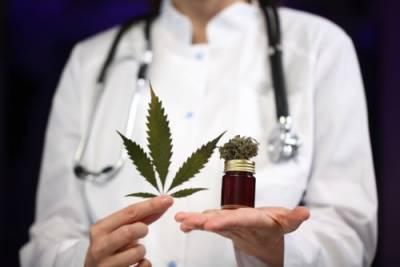 In 2013, the state of Illinois passed the Compassionate Use Act, which allowed the use of medical marijuana for patients suffering from certain medical conditions who received certification from their physician. In 2019, the state amended the law to also include certification by advanced practice registered nurses (APRN) and other healthcare professionals other than physicians. The law has specific guidelines that healthcare professionals must abide by when issuing medical marijuana recommendations to patients and failure to follow these rules could result in disciplinary action by the Illinois Medical Board and/or other consequences.
In 2013, the state of Illinois passed the Compassionate Use Act, which allowed the use of medical marijuana for patients suffering from certain medical conditions who received certification from their physician. In 2019, the state amended the law to also include certification by advanced practice registered nurses (APRN) and other healthcare professionals other than physicians. The law has specific guidelines that healthcare professionals must abide by when issuing medical marijuana recommendations to patients and failure to follow these rules could result in disciplinary action by the Illinois Medical Board and/or other consequences.
Certifying Patients
Healthcare professionals who certify patients for medical marijuana use already walk a fine line with federal marijuana laws. It is illegal for a doctor or any other medical professional to prescribe cannabis in any form to a patient under federal law because of its classification as a Schedule 1 drug and, under the current federal law, prescribing marijuana for a patient could be deemed aiding and abetting the patient in obtaining the drug.
What Pharmacy Students Need to Know About MPJE Remediation
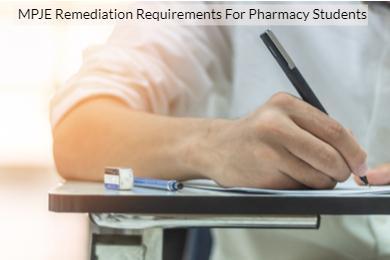 Pharmacists need to have detailed knowledge of a wide variety of pharmaceutical issues, as well as the practices followed in their profession and the legal issues related to the products and services they provide to patients. To ensure that a person will be able to meet all of their ongoing requirements as a pharmacist, they will need to complete examinations demonstrating their knowledge and competency. The Multistate Pharmacy Jurisprudence Examination (MPJE) is one of the two exams that students must pass, and if they fail this exam three times, they must complete certain requirements for remediation before they can retake the exam.
Pharmacists need to have detailed knowledge of a wide variety of pharmaceutical issues, as well as the practices followed in their profession and the legal issues related to the products and services they provide to patients. To ensure that a person will be able to meet all of their ongoing requirements as a pharmacist, they will need to complete examinations demonstrating their knowledge and competency. The Multistate Pharmacy Jurisprudence Examination (MPJE) is one of the two exams that students must pass, and if they fail this exam three times, they must complete certain requirements for remediation before they can retake the exam.
What Does the MPJE Cover?
The MPJE will consist of 120 questions, and a person will have 2.5 hours to complete the exam. These questions will cover:
-
Pharmacy practice (around 83 percent of the test) - Subjects addressed will include the legal responsibilities of pharmacy staff, procedures followed when acquiring and distributing pharmaceutical products, legal requirements for issuing prescriptions, proper procedures for dispensing controlled substances and other products, patient counseling requirements, requirements when distributing or dispensing non-prescription products or medications, record-keeping procedures, and requirements for handling hazardous materials.
How Can Unethical Conduct Affect a Psychologist’s Professional License?

Psychologists and therapists provide essential care for many people, helping them address issues related to mental health and working to ensure that they can maintain positive relationships with others. However, because psychologists discuss the sensitive details of people’s personal lives, they may sometimes be accused of unethical or unprofessional conduct. In these cases, a person may be investigated by the Illinois Department of Financial and Professional Regulation (IDFPR), and they may be subject to disciplinary action by the Illinois Board of Clinical Psychologists. Those who are facing discipline that could affect their professional license will want to work with an attorney to determine their best options for addressing these issues.
Forms of Unprofessional Conduct That Could Lead to License Discipline
How Can Drug Conspiracy Accusations Affect a Person’s DEA Registration?
 Medical providers who work with controlled substances are required to follow multiple laws and procedures, and they are likely to face scrutiny about their practices of prescribing and dispensing drugs. Doctors, pharmacists, and other providers are required to register with the Drug Enforcement Administration (DEA), and they must maintain this registration in order to be able to continue prescribing, administering, or dispensing controlled substances. The DEA will often investigate suspected cases of drug diversion, and in addition to pursuing criminal charges, it may suspend or revoke a provider’s controlled substance registration, which can lead to other consequences that affect their ability to continue practicing. Conspiracy to possess, dispense, or distribute a controlled substance is one offense that the DEA will be looking to address, and providers will want to be aware of the types of activities that could lead to an investigation.
Medical providers who work with controlled substances are required to follow multiple laws and procedures, and they are likely to face scrutiny about their practices of prescribing and dispensing drugs. Doctors, pharmacists, and other providers are required to register with the Drug Enforcement Administration (DEA), and they must maintain this registration in order to be able to continue prescribing, administering, or dispensing controlled substances. The DEA will often investigate suspected cases of drug diversion, and in addition to pursuing criminal charges, it may suspend or revoke a provider’s controlled substance registration, which can lead to other consequences that affect their ability to continue practicing. Conspiracy to possess, dispense, or distribute a controlled substance is one offense that the DEA will be looking to address, and providers will want to be aware of the types of activities that could lead to an investigation.
How Can I Restore My Medical License After IDFPR Disciplinary Action?
 There are multiple reasons why medical professionals may face disciplinary action. Certain types of criminal convictions, accusations of medical malpractice or unethical practices, or the loss of a DEA controlled substance registration are just a few of the many issues that may result in discipline. In these cases, the Illinois Medical Board, the Illinois Board of Nursing, or another division of the Illinois Department of Financial and Professional Regulation (IDFPR) may perform an investigation and pursue disciplinary action. Those who have had their medical license suspended or revoked or who have faced other forms of discipline will need to understand their options for restoring their license and resuming their practice.
There are multiple reasons why medical professionals may face disciplinary action. Certain types of criminal convictions, accusations of medical malpractice or unethical practices, or the loss of a DEA controlled substance registration are just a few of the many issues that may result in discipline. In these cases, the Illinois Medical Board, the Illinois Board of Nursing, or another division of the Illinois Department of Financial and Professional Regulation (IDFPR) may perform an investigation and pursue disciplinary action. Those who have had their medical license suspended or revoked or who have faced other forms of discipline will need to understand their options for restoring their license and resuming their practice.




